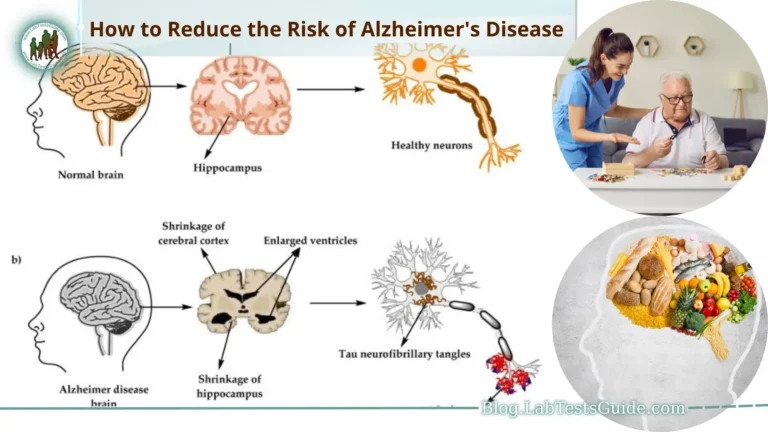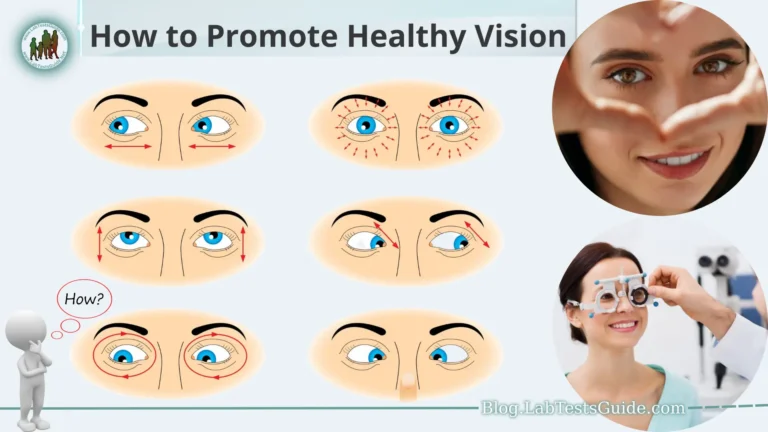Welcome to the comprehensive guide on how to improve mental clarity and focus. In today’s fast-paced world, maintaining a clear and focused mind has become increasingly challenging. Whether you’re struggling with distractions, information overload, stress, or simply seeking ways to enhance your cognitive abilities, this guide is here to provide practical strategies and techniques to help you sharpen your mental acuity.

Mental clarity and focus are essential for productivity, decision-making, learning, and overall well-being. When your mind is clear and focused, you can tackle tasks efficiently, retain information better, and experience reduced mental fatigue. However, achieving and maintaining this state requires a holistic approach that encompasses various aspects of your lifestyle, habits, and mindset. In the following sections, we will delve into the factors influencing mental clarity and focus, explore techniques to build healthy habits, discuss cognitive enhancement methods, and provide practical tips to eliminate distractions and enhance productivity. By the end of this guide, you will have a toolbox of strategies to unlock your full mental potential and navigate the challenges of modern life with clarity and focus.
What is Mental Clarity and Focus?
Mental Clarity:
- Mental clarity refers to having a clear and focused state of mind.
- It involves thinking with coherence, sharpness, and without mental fog.
- Achieving mental clarity allows for better processing and understanding of information.
- It enables making decisions more effectively and efficiently.
- Mental clarity involves having a clear vision and understanding of goals.
- It helps in maintaining a balanced perspective and avoiding cognitive biases.
Focus:
- Focus is the ability to direct one’s attention and concentration on a specific task or objective.
- It involves filtering out distractions and staying engaged in the present moment.
- Achieving focus enhances productivity and efficiency in tasks.
- Sustained focus leads to improved learning and retention of information.
- It is essential for problem-solving and creative thinking.
- Maintaining focus contributes to reduced stress and mental fatigue.
How to Achieve Mental Clarity and Focus:
Here are some practical strategies and tips to help you enhance your mental acuity and stay focused.
Create a Consistent Daily Routine:
- Establish a daily schedule that includes dedicated time for work, rest, exercise, and relaxation.
- Consistency helps train your brain to focus during designated periods.
Prioritize Tasks and Set Goals:
- Determine your most important tasks and prioritize them.
- Set specific, achievable goals to give your mind a clear direction.
Practice Mindfulness and Meditation:
- Engage in mindfulness exercises to improve present-moment awareness.
- Regular meditation can enhance focus and reduce mental clutter.
Develop Effective Time Management Skills:
- Use time-blocking techniques to allocate focused time for specific tasks.
- Avoid multitasking, as it can reduce overall productivity.
Get Sufficient Sleep and Rest:
- Aim for 7-9 hours of quality sleep each night to rejuvenate your mind.
- Take short breaks during work sessions to prevent mental fatigue.
Stay Hydrated and Maintain a Balanced Diet:
- Proper hydration and nutrition support cognitive function.
- Include brain-boosting foods like nuts, fatty fish, and leafy greens in your diet.
Exercise Regularly:
- Physical activity improves blood flow to the brain, promoting mental clarity.
- Consider incorporating aerobic exercises, yoga, or meditation into your routine.
Eliminate Distractions:
- Minimize distractions by creating a clutter-free workspace.
- Turn off notifications and establish boundaries with technology during focus periods.
Use Focus Aids:
- Background music or white noise can help some individuals concentrate better.
- Experiment with different focus aids to find what works best for you.
Practice Deep Work:
- Allocate specific, uninterrupted time for complex tasks that require deep concentration.
- Set clear objectives and immerse yourself fully in the task.
Building Healthy Habits for Improved Focus:
Here are some effective strategies to cultivate habits that enhance your ability to concentrate.
Establish a Consistent Routine:
- Create a daily schedule that includes set times for work, breaks, meals, and rest.
- Consistency helps your brain develop a natural rhythm and prepares it for focused tasks.
Prioritize Tasks and Set Clear Goals:
- Identify your most important tasks and prioritize them based on their significance and deadlines.
- Set clear and achievable goals to provide direction and motivation for your focus.
Practice Mindfulness and Meditation:
- Engage in mindfulness exercises to heighten your present-moment awareness.
- Regular meditation can increase your ability to sustain attention and reduce mental distractions.
Develop Effective Time Management Skills:
- Utilize time-blocking techniques to allocate specific time slots for focused work.
- Avoid multitasking, as it can lead to reduced productivity and decreased focus.
Get Adequate Sleep and Rest:
- Aim for 7-9 hours of quality sleep each night to allow your mind to recharge.
- Take short breaks during work sessions to prevent mental fatigue and maintain focus.
Stay Hydrated and Follow a Balanced Diet:
- Proper hydration and nutrition support cognitive function and mental clarity.
- Consume brain-boosting foods like blueberries, avocados, and dark chocolate.
Incorporate Regular Exercise:
- Engage in regular physical activity to improve blood flow to the brain.
- Consider activities like walking, jogging, or yoga to boost focus and concentration.
Minimize Distractions:
- Create a dedicated and clutter-free workspace to minimize external disruptions.
- Turn off notifications or use website blockers during focus periods.
Use Focus Techniques:
- Practice the Pomodoro Technique, where you work in focused intervals followed by short breaks.
- Set a specific goal for each session to maintain a sense of purpose and direction.
Practice Deep Work:
- Allocate uninterrupted time for tasks that require intense concentration and creativity.
- Create a distraction-free environment to fully immerse yourself in the work.
Cognitive Enhancement Techniques:
Here are some common cognitive enhancement techniques.
Brain Training Exercises:
- Engaging in brain-training games and puzzles that challenge memory, attention, and problem-solving skills.
- Online platforms and apps offer various brain-training exercises designed to stimulate cognitive functions.
Memory Improvement Techniques:
- Employing mnemonic devices, such as acronyms or visualization, to enhance memory recall.
- Practicing active recall by repeatedly retrieving information from memory to strengthen retention.
Cognitive Supplements and Nootropics:
- Some individuals may explore the use of cognitive-enhancing supplements or nootropics to improve focus and memory.
- It is essential to consult with a healthcare professional before using any supplements for cognitive enhancement.
Brain-Boosting Foods:
- Consuming a balanced diet rich in nutrients that support brain health, such as omega-3 fatty acids, antioxidants, and vitamins.
- Foods like fish, nuts, berries, and leafy greens are known for their cognitive benefits.
Meditation and Mindfulness:
- Regular meditation practices can promote attention and focus, reducing mind wandering and distractions.
- Mindfulness techniques help individuals stay present and aware, which enhances cognitive clarity.
- Cognitive Behavioral Therapy (CBT): CBT is a therapeutic approach that can address cognitive distortions and negative thought patterns, leading to improved cognitive functioning.
Physical Exercise:
- Regular physical activity enhances blood flow to the brain, promoting cognitive function and memory.
- Exercise has been linked to increased brain-derived neurotrophic factor (BDNF), which supports brain health.
Sleep and Rest:
- Prioritizing sufficient sleep to facilitate memory consolidation and cognitive restoration.
- Short power naps can also help rejuvenate the mind and improve cognitive performance.
- Mindful Breathing and Relaxation Techniques: Practicing deep breathing and relaxation exercises can reduce stress, which can negatively impact cognitive abilities.
Learning New Skills and Challenging Activities:
- Engaging in lifelong learning and pursuing intellectually stimulating hobbies.
- Challenging the brain with novel activities can promote cognitive plasticity and growth.
Techniques for Enhancing Mental Clarity:
Here are some effective techniques to boost mental clarity.
Deep Breathing and Relaxation Techniques:
- Practice deep breathing exercises to reduce stress and promote a calm and clear mind.
- Incorporate relaxation techniques like progressive muscle relaxation or guided imagery to ease mental tension.
Visualization and Mental Imagery:
- Use visualization techniques to create a clear mental picture of your goals and desired outcomes.
- Mentally rehearse challenging tasks or situations to enhance preparedness and confidence.
Journaling and Brain Dumping:
- Keep a journal to express thoughts, emotions, and ideas, freeing your mind from clutter.
- Brain dumping involves writing down all your thoughts without filtering, helping clear mental distractions.
Power Napping and Restorative Sleep:
- Take short power naps to recharge your mind and boost alertness.
- Ensure you get enough restorative sleep each night to allow the brain to consolidate memories and rejuvenate.
Limiting Information Overload:
- Reduce exposure to excessive information and stimuli, such as limiting screen time and news consumption.
- Prioritize high-quality, relevant information to avoid cognitive overload.
Mindful Eating:
- Practice mindful eating, focusing on the flavors and textures of your food, to enhance present-moment awareness.
- Avoid overeating or eating mindlessly, as it can lead to mental fogginess.
Regular Physical Exercise:
- Engage in regular physical activity to increase blood flow to the brain, supporting cognitive function.
- Activities like walking, jogging, or yoga can positively impact mental clarity.
- Stay Hydrated: Drink enough water throughout the day to maintain proper hydration, which is crucial for optimal brain function.
- Limit Caffeine and Sugar: Avoid excessive consumption of caffeine and sugary foods, as they can lead to energy crashes and hinder mental clarity.
- Practice Single-Tasking: Focus on one task at a time rather than multitasking, as it enhances concentration and efficiency.
- Give each task your full attention before moving on to the next one.
Eliminating Distractions and Enhancing Productivity:
Here are some effective strategies to achieve this.
Identify Common Distractions:
- Recognize the specific distractions that frequently interrupt your work or tasks.
- This might include social media, email notifications, or background noise.
Create a Clutter-Free Workspace:
- Organize your workspace to minimize visual distractions and create a conducive environment for productivity.
- Keep only essential items on your desk and remove unnecessary clutter.
Time Blocking and Pomodoro Technique:
- Use time blocking to allocate specific time slots for focused work on particular tasks.
- Consider implementing the Pomodoro Technique, working in focused intervals followed by short breaks.
Set Boundaries with Technology and Social Media:
- Disable non-essential notifications on your devices to reduce distractions.
- Set specific times for checking emails and social media to prevent constant interruptions.
Implement the Two-Minute Rule:
- If a task takes less than two minutes to complete, do it immediately rather than postponing it.
- This reduces the accumulation of small tasks and distractions throughout the day.
Prioritize Tasks and Set Goals:
- Use to-do lists or task management tools to prioritize tasks based on importance and deadlines.
- Set clear goals to provide direction and motivation for your work.
Utilize Focus Aids like Music and White Noise:
- Some people find that background music or white noise can help them concentrate better.
- Experiment with different types of music or ambient sounds to find what works for you.
Practice Single-Tasking:
- Focus on one task at a time rather than trying to multitask, as it can reduce productivity and increase errors.
- Give each task your full attention before moving on to the next one.
Take Regular Breaks:
- Schedule short breaks during work sessions to rest and rejuvenate your mind.
- Stepping away from your desk can enhance creativity and prevent burnout.
Use Productivity Tools:
- Explore productivity tools and apps that can help you stay organized and focused.
- These might include task managers, time trackers, or website blockers
Strategies for Long-Term Mental Clarity and Focus:
Here are some strategies to sustain mental sharpness over the long term.
The Role of Lifelong Learning:
- Cultivate a growth mindset and embrace continuous learning throughout your life.
- Engage in new hobbies, take up challenging courses, and seek opportunities for intellectual stimulation.
Building Resilience and Emotional Intelligence:
- Develop emotional intelligence to manage stress and emotions effectively.
- Cultivate resilience to bounce back from setbacks and maintain mental clarity during challenging times.
Cultivating a Growth Mindset:
- Embrace challenges and view failures as opportunities for growth and learning.
- Believe in your ability to improve and develop new skills with effort and dedication.
Social Connections and Support:
- Maintain strong social connections and spend time with supportive and positive individuals.
- Meaningful interactions with others can boost mental clarity and overall well-being.
Prioritizing Sleep and Rest:
- Make sufficient sleep and rest a priority to allow your brain to recharge and consolidate memories.
- Establish a consistent sleep schedule to optimize cognitive function.
Stress Management Techniques:
- Practice stress-reduction techniques, such as mindfulness, deep breathing, or yoga.
- Manage stress effectively to prevent it from negatively impacting mental clarity.
Regular Exercise:
- Engage in regular physical activity to support brain health and enhance cognitive function.
- Exercise promotes the release of neurotransmitters that positively affect mood and focus.
Maintain a Balanced Diet:
- Consume a nutritious and balanced diet to provide your brain with essential nutrients.
- Foods rich in antioxidants, vitamins, and omega-3 fatty acids are beneficial for brain health.
Limiting Alcohol and Substance Use:
- Moderating alcohol intake and avoiding substance abuse helps preserve cognitive function.
- Excessive alcohol and drug use can impair mental clarity and focus.
Mindful Technology Use:
- Be mindful of your technology habits and limit excessive screen time.
- Set boundaries for technology use to prevent it from becoming a distraction.
FAQs:
How can I improve my mental clarity and focus?
You can improve mental clarity and focus through various strategies, such as getting enough sleep, staying hydrated, exercising regularly, practicing mindfulness and meditation, and eliminating distractions. Building a consistent routine and setting clear goals can also help enhance focus and cognitive abilities.
Are there any supplements or nootropics that can enhance mental clarity?
Some individuals explore cognitive-enhancing supplements or nootropics to improve mental clarity. However, it’s crucial to approach such supplements with caution and consult with a healthcare professional before use. Not all supplements may be safe or effective for everyone, and individual responses may vary.
How can I stay focused and avoid distractions during work or study sessions?
To stay focused and avoid distractions, create a dedicated workspace, turn off non-essential notifications, use focus techniques like time blocking or the Pomodoro Technique, and practice single-tasking. Minimizing interruptions and setting clear goals can also help maintain focus.
Can mindfulness and meditation really improve mental clarity?
Yes, mindfulness and meditation can improve mental clarity by promoting present-moment awareness, reducing mental clutter, and enhancing attention control. Regular mindfulness practices have been shown to positively impact cognitive function and overall well-being.
How can I improve my memory and retention of information?
To improve memory, consider using memory improvement techniques like mnemonic devices and active recall. Engaging in brain-training exercises, staying mentally active through learning new skills, and getting sufficient sleep are also beneficial for memory enhancement.
What role does exercise play in enhancing mental clarity and focus?
Regular physical exercise increases blood flow to the brain, which supports cognitive function and memory. Exercise also promotes the release of neurotransmitters that positively affect mood and focus, making it an essential factor in enhancing mental clarity.
How can I manage stress to maintain mental clarity?
Stress management techniques like mindfulness, deep breathing, yoga, and regular exercise can help reduce stress and maintain mental clarity. Prioritizing self-care and setting realistic expectations for yourself can also alleviate stress and improve focus.
Is it possible to improve mental clarity and focus in the long term?
Yes, improving mental clarity and focus in the long term is possible through consistent practice of healthy habits and lifestyle choices. Cultivating a growth mindset, staying socially connected, and maintaining a balanced lifestyle contribute to sustained mental acuity over time.
Can technology and social media impact mental clarity?
Excessive technology use and social media can be distracting and impact mental clarity negatively. Setting boundaries with technology and being mindful of its usage can help prevent it from becoming a source of distraction.
Are there any specific brain-boosting foods that can enhance mental clarity?
Foods rich in omega-3 fatty acids (e.g., fatty fish), antioxidants (e.g., berries), and vitamins (e.g., leafy greens) are known to be beneficial for brain health and mental clarity. Maintaining a balanced diet with nutritious foods can support cognitive function.
Conclusion:
In conclusion, achieving and maintaining mental clarity and focus are essential for optimal productivity, learning, and overall well-being. By implementing a combination of strategies and techniques, such as creating a consistent routine, prioritizing tasks, practicing mindfulness, and engaging in brain-boosting activities, individuals can enhance their cognitive abilities and sharpen their focus. It is crucial to prioritize rest, exercise, and stress management to support long-term mental acuity. Additionally, developing a growth mindset and staying socially connected contribute to sustained mental clarity. With dedication and patience, these habits can lead to a clearer and more focused mind, enabling individuals to navigate life’s challenges with greater efficiency and achieve their goals with confidence.






